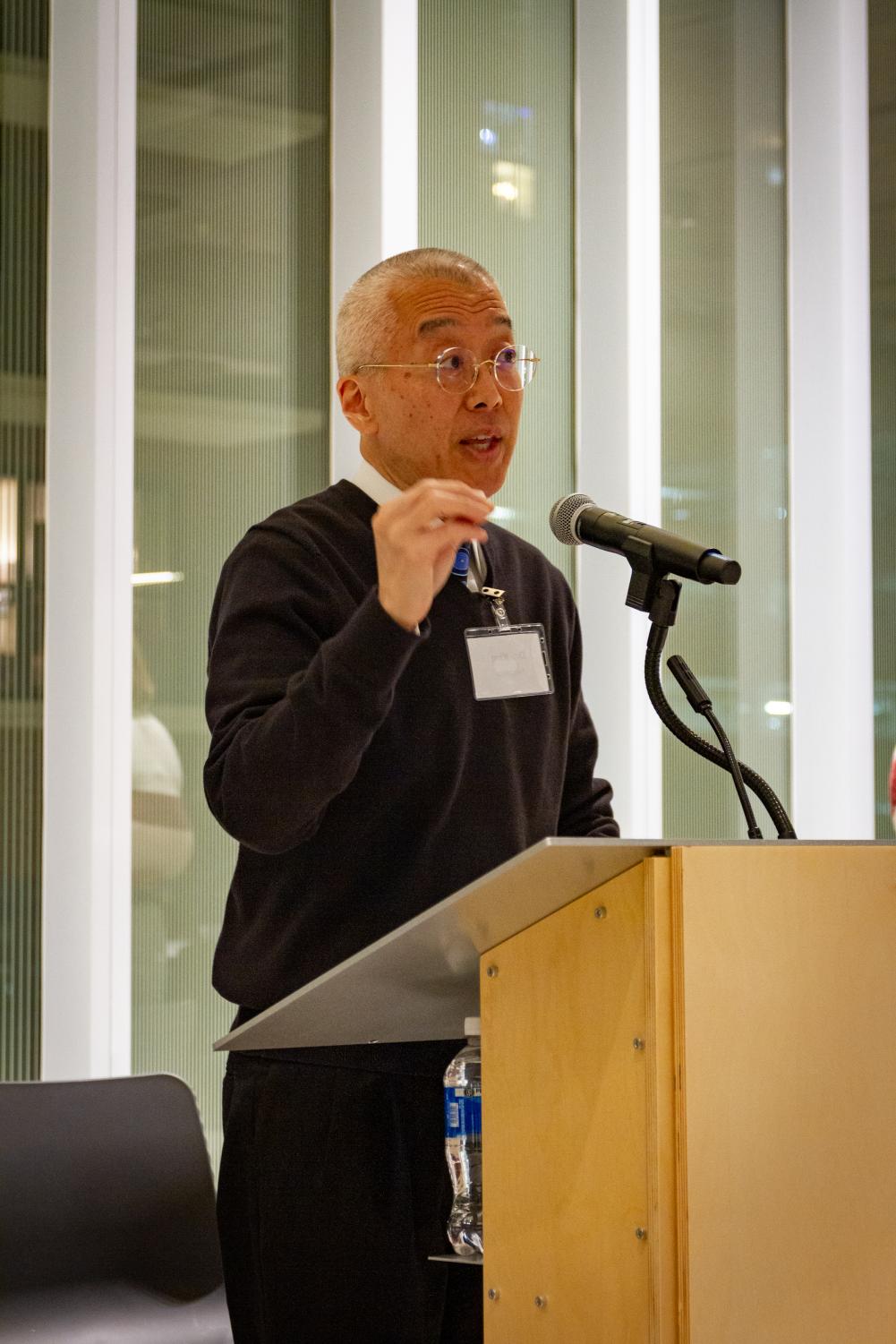President Kim addresses diversity and inclusion, access to campus resources
November 7, 2019

President and CEO Kwang-Wu Kim tells students Tuesday he hopes to improve student/college communication in a number of areas.
Joined by Senior Vice President and Provost Marcella David and Vice President of Student Affairs Sharon Wilson-Taylor, President and CEO Kwang-Wu Kim kicked-off a discussion with students by acknowledging the college’s shortcomings.
He assured students that Columbia will continue to improve in key areas, such as enrollment, curriculum development, fund allocation and Diversity, Equity and Inclusion.
“Although we are trying to deal with issues of racism and other forms of oppression on this campus, those problems are still alive and well and have yet to be fully resolved,” Kim said. “We’re taking this very seriously and trying to understand what are you actually experiencing … and what can we do to make that better.”
Kim made the remarks at the annual “Let’s Chat with Dr. Kim” event Tuesday, led by members of the Student Government Association. Students had the opportunity to ask Kim about topics pertaining to their personal school experiences at the gathering, held for the first time at the new Student Center, 754 S. Wabash Ave.
A common concern voiced by Columbia students during the event was the lack of knowledge among students surrounding key resources provided by the college, as well as the desire for more comprehensive services.
As junior radio major and SGA Executive Vice President Jori Roberts said, there are a number of spaces on campus that are available to all students.
“I think the problem is a lot of students feel like they have to be in that major to use that resource,” Roberts said.
However, some campus resources, such as photography, film or audio arts and acoustics equipment are off-limits to students in certain majors, as reported Nov. 4 by the Chronicle.
Kevin Herrera, sophomore marketing major and SGA commuter senator, pointed out that other schools in the Chicago area provide resources for commuter students that Columbia does not.
As commuter senator, Herrera questioned what resources the college did have in place for commuters and suggested Columbia add a page to its website listing those offerings.
“At another school like [the University of Illinois at Chicago], for example, they have listed where [students] can go study, where do they park, how much is parking around the area and things like that,” Herrera said.
In regards to commuter costs for transportation, SGA President Kierah King, senior dance major, said SGA has been working on a petition with other Chicago schools to receive discounted or tuition-funded student Metra passes.
While Kim said he does not have a confirmed solution to ensure students are aware of all the resources available, he and Wilson-Taylor said the college will work on redesigning the website to make information more visible to everyone seeking Columbia’s resources.
In a Nov. 6 email to the Chronicle, David said the web redesign project is under the jurisdiction of the Strategic Communications and External Relations team at the college.
“This is one of my single greatest frustrations … the fact that we have students who, because they don’t know, are not taking fullest advantage of what is actually here,” Kim said. “I’d be happy to meet with some of you and just talk this through and think about better ways to gather more input from students.”
Another topic was the school’s acceptance of different gender identities and its gradual adaptation to ask students and faculty to declare their preferred pronouns.
An anonymous question submitted by a student asked Kim if faculty are required to partake in DEI training after continuously misgendering students.
Kim said he will discuss the matter with the Transgender Student Union on Nov. 8, and said the world “has a lot of catching up to do” in terms of discourse surrounding gender identity.
“If we’re not doing training then we need to do something,” Kim said. “Even if we do training and people don’t get it, I hope we’re all willing to help each other learn.”







